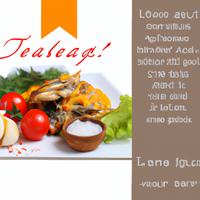
1 serving (100 grams) contains 35 calories, 3.1 grams of protein, 0.2 grams of fat, and 4.1 grams of carbohydrates.

Log this food in SnapCalorie

Nutrition Information
Calories |
52.2 | ||
|---|---|---|---|
% Daily Value* |
|||
| Total Fat | 0.3 g | 0% | |
| Saturated Fat | 0.0 g | 0% | |
| Polyunsaturated Fat | 0 g | ||
| Cholesterol | 0 mg | 0% | |
| Sodium | 9.0 mg | 0% | |
| Total Carbohydrates | 6.1 g | 2% | |
| Dietary Fiber | 2.7 g | 9% | |
| Sugars | 3.7 g | ||
| protein | 4.6 g | 9% | |
| Vitamin D | 0 mcg | 0% | |
| Calcium | 19.4 mg | 1% | |
| Iron | 1.3 mg | 7% | |
| Potassium | 117.9 mg | 2% | |
* Percent Daily Values are based on a 2,000 calorie diet. Your daily values may be higher or lower depending on your calorie needs.
Food Attributes
Source of Calories
About Cooked tauge
Cooked tauge, commonly known as cooked bean sprouts, is a versatile ingredient in many Asian cuisines, particularly Indonesian, Chinese, and Korean dishes. Derived from sprouted mung beans, tauge is lightly cooked to preserve its crunchy texture and subtle flavor. Nutritionally, cooked tauge is low in calories but rich in essential nutrients, including vitamin C, B vitamins, folate, and iron. It is also a good source of fiber and antioxidants, which support digestion and immune health. Additionally, its high water content contributes to hydration. However, care should be taken when preparing tauge, as improper handling and cooking may pose a risk of bacterial contamination. Rinse thoroughly and cook adequately to ensure safety. Often enjoyed in stir-fries, soups, salads, and noodle dishes, cooked tauge is both nutritious and delicious, adding a refreshing and slightly nutty contrast to meals.



